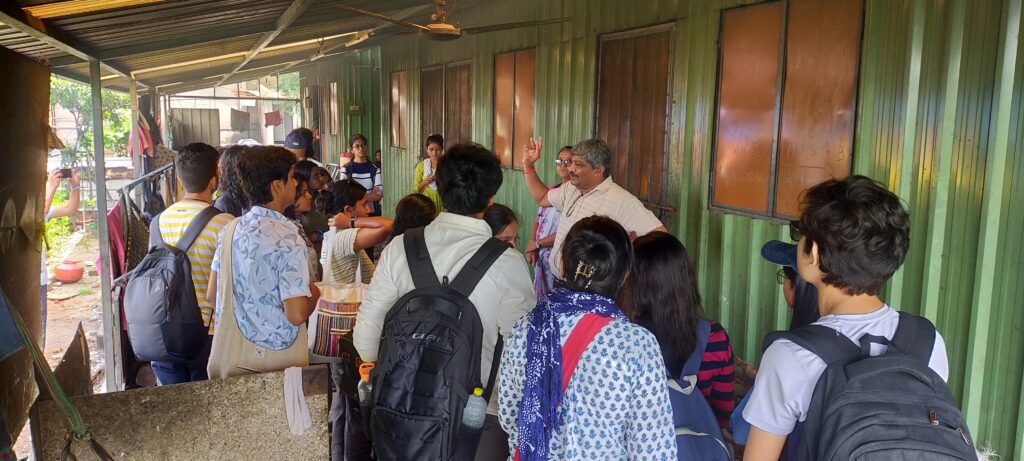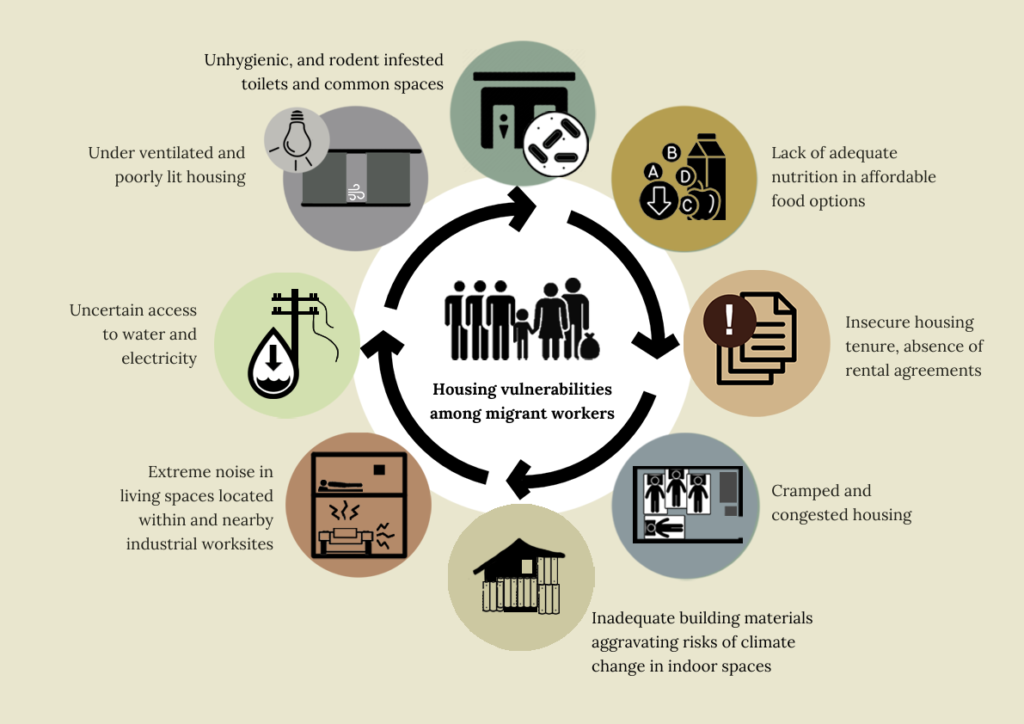
Focus on Housing
Low-income, informal migrant workers in urban areas face a range of social, economic and political vulnerabilities due to which the potential of migration as a pathway to social and economic mobility, and as a means of achieving developmental outcomes remains unrealized. Often, at the heart of these vulnerabilities is the lack of decent, secure and affordable housing.
Poor housing negatively impacts physical and mental health among low-income communities, their resilience to cope with disasters arising from natural and man-made climate change, women and children’s access to sanitation and safety, the ability of both men and women to participate in the workforce and develop new skills, and their access to welfare entitlements and financial inclusion.
Yet, policy and practice do not give the housing of low-income communities, particularly migrants, the attention that is commensurate to these profound impacts on their lives. ShelterSquare Foundation endeavours to change this by developing a robust understanding of the problem space and evolving novel strategies that are scaleable.

The Problem Space and Our Strategies
ShelterSquare Foundation identifies a set of interconnected gaps in the low-income and rental housing sectors that are responsible for the housing crisis of low-income, informal migrant workers. Our strategies closely reflect our problem identification and pave the way towards a set of solutions to address these gaps.
Unlocking urban land for social housing
SSF aims to partner with landowners, including the government, industrial employers and real-estate developers who can contribute land for building workers’ housing.
Solving for housing quality and housing affordability
SSF aims to directly address the trade-offs that workers make between housing quality and housing affordability by:
- providing housing options through a revenue-cum-grants model
- implementing context-appropriate standards and benchmarks, with participation of worker communities
- enabling access to sustainable water, sanitation and energy systems, besides nutritious food
- developing flexible payment mechanisms and provisions in budgets for contributory risks
Pioneering social housing management
SSF aims to develop and implement efficient, contextually appropriate and sensitive housing management models that can achieve both social and financial goals.
Bundling value-adds with housing
SSF will leverage worker concentrations and well-designed common, community spaces in its housing projects to promote and scale workers’ documentation (including formal rent agreements) and entitlement linkages; conduct health and de-addiction camps; enable community life; offer skilling programs and job placements; and facillitate workers’ financial inclusion.
Programming housing ownership pathways
SSF will address low-income workers’ exclusion from the self-owned housing market, through shared, community-based and ‘rent-to-own’ models.
